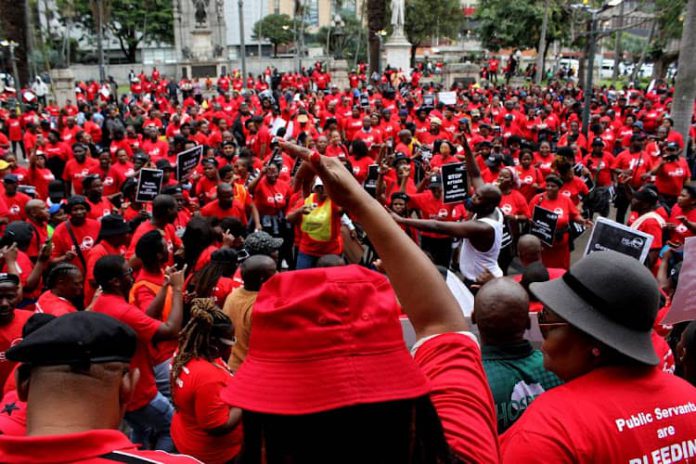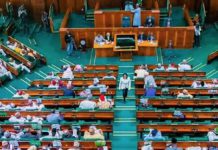Public sector unions have strongly objected to the state’s inclusion of new vetting methods for people applying for government jobs including stringent checks on financial obligations.
This after minister of public service and administration minister Noxolo Kiviet on Friday gazetted new directives that include integrity assessments and credit history checks. Kiviet said the rules must be implemented for the national, provincial and local governments and state-owned entities.
According to the directives, job seekers will now be subjected to a method already used by the Special Investigation Unit (SIU). The SIU model entails assessing an applicant’s financial situation and whether or not they have been paying their debts among others.
Other checks include previous workplace record, truth veracity test, criminal record and qualifications.
Public Service Association acting deputy general manager for members’ affairs Rueben Maleka said vetting should relate to the relevancy and responsibility of an employee’s occupation.
Maleka, however, said the process should not necessarily see government checking how people manage their bank accounts.
“We don’t believe that [a recruitment process] should be an investigation. Vetting and investigation are different. If you are going to be investigating, that also … goes deeper into personal bank accounts and we don’t think that is more appropriate unless it is for a specific job. We don’t encourage that,” he said.
“If you are going to be a chief financial officer or director-general that [SIU methodology vetting] that would make sense. Why would you have the same process for someone who is going to be administration clerk, who will be dealing with non-financial matters? That would be a waste of resources by saying each and every process of an employee should go that [vetting route].”
In his State of the Nation Address in February, President Cyril Ramaphosa said a professional public service, staffed by skilled, committed and ethical people, was critical to an effective state and ending corruption, patronage and wastage.
“In response to the state capture commission and in line with the framework for the professionalisation of the public service, integrity assessments will become a mandatory requirement for recruitment to the public service and entry exams will be introduced,” he said.
The framework, which among other things, seeks to minimise corruption in the public sector, wants state departments and institutions to perform stringent pre-employment screening to establish the risk profile of an applicant before their appointment.
Trade union federation Cosatu’s acting spokesperson Mathew Parks said when government presented the document two years ago at National Economic Development and Labour Council it did not include the SIU methodology vetting.
“The document did not go on vetting [all people before they get into public service]. The document did talk about the right qualifications. The vetting is a little bit new and it is problematic red herring so to speak,” said Parks
“There are endless delays in getting [vetting] done,” said Parks.
He described the vetting rule was a joke as to say that everybody should be vetted.
“It doesn’t make sense. Why does a cleaner or a nurse need vetting? Government vetting is bit extreme,” he said, adding that vetting all employees would be unconstitutional.
Public Service Commission chairperson Prof Somadoda Fikeni said when the broad framework was in circulation it did not talk about the integrity tests but the filtering of people before they get into public service.
“The document, in the initial instance, did not go into the details that the SIU would do this and that,” he said.
He said the document’s rational was to professionalise public service and have competent people in public service.
“The kinds of weaknesses that have been spotted in the past are dealt with where people are appointed on the basis of loyalty instead of competence, where people who have done wrong disappear from this province and reappear in another province,” said Fikeni.
He said the document also sought to guide how the state should implement consequence management, performance and discipline management.
Business Unity SA chief executive Cas Coovadia praised the government for gazetting the framework, however, said he was unsure if the vetting should be extended to all employees.
“It is good to ensure that government employees operate in an ethical manner and to do ethical checks is a rights way to go,
“However, it would be quite a massive task to control the process for all employees.”
He said it should be done on state employees who control resources, supply chain management, collect revenue.
“Government should make sure those employees have not been flagged by their previous employers and that they can manage their personal lives in an ethical way.
“We need to see proper implementation of the framework and accountability and proper recourse for people falling foul of the rules.”











